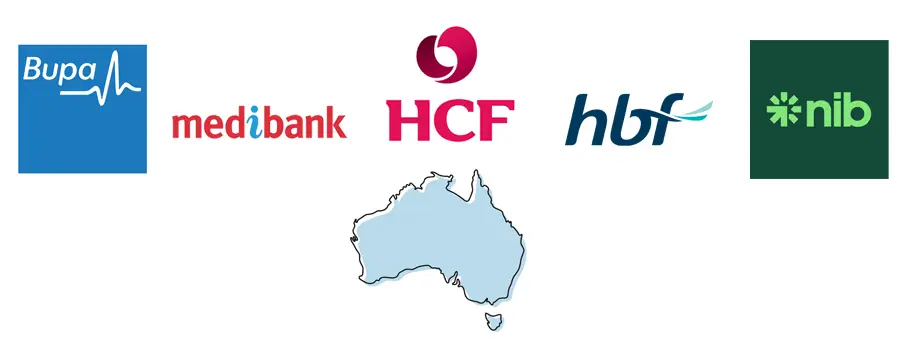
Why are Australians cancelling their health insurance?
Private health insurance is going through it’s biggest challenge yet. Prices continue to increase more than normal inflation and many people are left wondering if the cost justifies the value. Our new generation of youthful Australians are either cancelling our of health insurance or not taking it up in the first place mainly because it’s such a significant expense.
The risk here is that if young and healthy people don’t keep the private health insurance age demographic balanced, then the see-saw will tip. Too many senior Aussies with high-cost health requirements means health funds are forced to increase premiums. After all, joint replacements, open-heart surgery, dialysis, rehabilitation, major eye surgery… this is all the expensive stuff. It’s also all the more reason that middle-aged and senior Australians absolutely need private hospital cover.
Of course, health insurance can be a grudge-buy. Handing over hundreds of dollars per month and getting nothing tangible in return can leave the dopamine receptors in our brains firing blanks. It’s no surprise that more young people are dropping out of the health insurance game when they are conditioned to receiving instant gratification. Couple with the fact that young people are generally fit and healthy, how could private health insurance be of use when it’s never required?
There’s a saying in this industry that still rings true: you never need insurance until you do. The beauty of the Australian health landscape (public and private) is that the many props up the few, the young support the aged, and the healthy contribute more than they ought to so that the sickly don’t go bankrupt. We should be proud of this system. The alternative is to go the way of the American health system… let’s not.
Good value health insurance
Building value into your health insurance is a complex yet rewarding outcome to pursue. Value is a broad term. Value in private health insurance means feeling that the rebates and returns are justified by the cost: you hand over premiums each month, you get something valuable for your spend. A lot of insured Australians don’t feel they get very good value, so we’ve decided to put together a plan to help change that before you go ahead and cancel your health insurance policy.
This is the most misunderstood aspect of health insurance. An annual limit is how much you have to spend on a particular extras category before you are capped. The Rebate is how much your fund actually pays out when you make a claim. For example, a policy might have a $500 annual limit per person for Physiotherapy, but may only payout a $23 rebate per Physio visit when you actually make a claim.
Why should you continue to pay the lions share for such services? Especially considering how much you pay into your health fund. It’s no wonder so many people cancel health insurance as a result.
Many of the bigger health funds are known for dangling high annual limits in front of their customers, but being incredibly stingy on the actual rebates. Often a person won’t realise until they go to make a claim, which can be years after a policy is taken out. The point of claim is where a lot of people become upset with their health insurance. Being on a policy with higher rebates mean you hand over less money for the extras services you use most. Higher rebates = Better Value.

Portability
Don’t re-serve waiting periods when you switch to a new health fund or policy
“John was immediately covered for a hip replacement in private hospital because he had already served his waiting periods for joint replacements on his old policy”
Hospital Cover: Exclusions and medical gap cover
Getting value out of your Private hospital cover policy is considerably more complex. It’s not as simple as how much your health fund pays for any given procedure. Value from hospital cover comes from what procedures are included or excluded, and how much money you hand over to your private doctor and anaesthetist in the way of their Medical Gap fee.
A key change that can reduce your health insurance premiums is to remove high-cost procedures that you likely won’t need (you might be surprised by the number of people over 50 that are still paying for Obstetrics, Pregnancy and IVF). Gold (Top) Hospital cover can also include Psychiatric services, Dialysis, Weight Loss procedures, and many other clinical categories that you may not need to be paying for.
One of the most common reasons people cancel health insurance is when they are hit with a bank-breaking private doctors gap bill after surgery.
Gap Cover can be an overwhelming topic, but it’s really quite simple. When we give health insurance advice to our customers over the phone, explaining Medical Gap Cover is one of the most rewarding ‘a-ha’ moments of the process. Probably the biggest complaint we hear from our customers is when they’ve finally gone an used their hospital cover for private surgery, and they’ve been hit with a bank-breaking doctors gap bill. It is of paramount importance that you understand gap cover terminology and how it works to help avoid this from happening to you.
Knowing your rights before you go in for surgery, and asking the right gap cover questions at the right time can be the difference between forking out thousands of dollars for a private procedure or not. Of course, being with a reputable private health fund that offers recognisable gap cover options to your doctor is just as important. An example of one of Australias most reputable Gap Cover programs is called Access Gap Cover by the AHSA
Premiums: Staying up to date
April 1st every year. Health insurance premiums increase again. Being on a silver or gold hospital cover, or holding a couple/family policy means paying over $400 per month for health insurance is becoming the norm. That’s just not good enough. Coming up with that kind of money can be difficult. More and more Australians are being forced to cancel their health insurance as a result.
We find that the most common reason people are on low-value health insurance policies is that they have remained on the same policy for more than five years. Policies go out of date, people.
The best way to reduce your premiums is to compare health insurance policies with the rest of the market. There are 40 health insurers and new policies are being released almost annually. Staying on top of your health insurance comparisons every 2-3 years is the single most effective way to keep your costs down and your benefits high. It also keeps the health funds on their toes as well, because they are forced to be more competitive when the market is kept healthy by health insurance switchers.
Should I cancel my health insurance?
Fair Healthcare Alliance can help you compare 23 health funds, many of which are not-for-profit. We can help you increase rebates, review hospital exclusions, learn about your Medical Gap Cover, and reduce your premiums. You should certainly undertake this exercise before you cancel health insurance.
It’s impossible to give health insurance advice without speaking to you on the phone, so we’re not going to give you a cheap and indirect online quote. We need to know what’s important to you and what isn’t, what you need and don’t need. Finally, we will help you compare your new policy to your old policy apples-with-apples.
Our customers give us 5-star reviews because we are transparent, honest, and care about you and your family’s need. We walk you through a health insurance comparison and explain everything along the way. Exclusions, excess, ambulance, participating hospitals… you get the picture. Contact us below and we can have a refined, tailored health insurance quote in your hand after a quick chat centred all around you.






